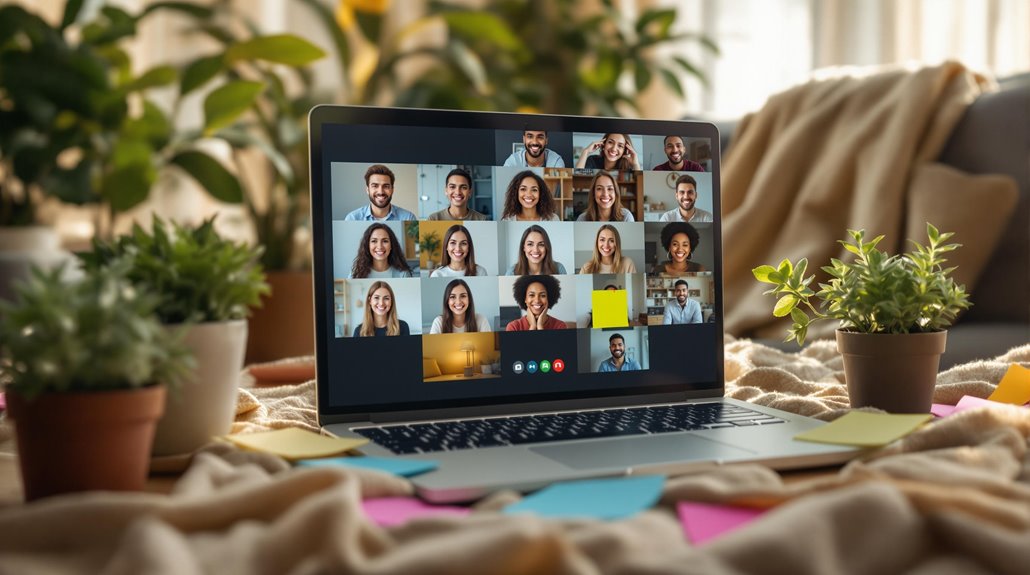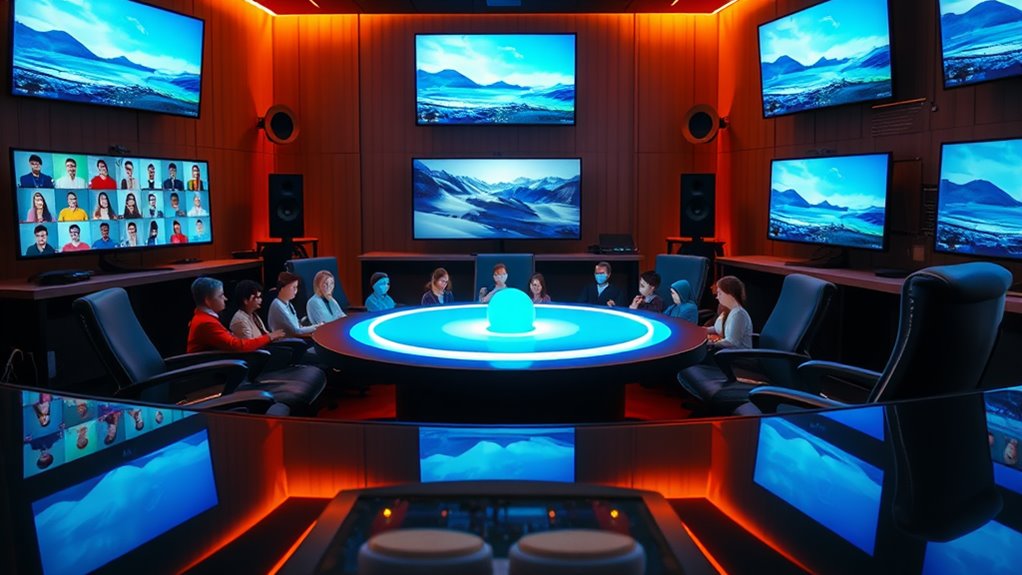
You’re looking for the best online support groups for mental health, and here are three worth considering. The Anxiety and Depression Association of America (ADAA) offers a wide range of support groups across different countries. If you prefer peer-led support, the Depression and Bipolar Support Alliance (DBSA) provides online groups focusing on mood disorders. For a more structured approach, Pathlight Mood & Anxiety Center connects you with trained facilitators to guide your discussions. Each of these platforms provides a safe space to share experiences and strategies with others. Explore their offerings to find the right fit for your emotional needs.
Anxiety and Depression Support
When you’re battling anxiety and depression, finding support can be essential to your journey. Embracing effective coping strategies and cultivating emotional resilience can profoundly transform your experience. It may be beneficial to engage in mindful eating techniques to promote awareness and control, aiding in weight management and overall mental health.
The Anxiety and Depression Association of America (ADAA) is a great resource. By offering free in-person and virtual support groups in the U.S., Canada, and Australia, ADAA provides spaces where you’re encouraged to share and learn. Their online platform on HealthUnlocked, boasting over 59,000 members, is perfect if you want the comfort of anonymity. While there’s no crisis support, the focus on community support fosters a sense of belonging and understanding. Research indicates that participation in peer support groups can complement traditional therapy methods and positively impact mental well-being.
Likewise, the Depression and Bipolar Support Alliance (DBSA) excels in creating a safe, peer-led environment. These free online groups are enriched by individuals who know firsthand the trials of mood disorders.
You’ll find an enriching space to discuss coping strategies and boost your emotional resilience.
Meanwhile, Pathlight Mood & Anxiety Center provides virtual support groups led by trained facilitators. Although these groups complement rather than replace therapy, they emphasize confidentiality and focus on topics like LGBTQ+ mental health and grief, affirming your path to emotional liberation.
24/7 Mental Health Community
Situated as an essential resource, the 7 Mental Health Community offers a dynamic space for people seeking general mental health support. Through this community, you gain access to mental health awareness and peer support that’s both informative and inspiring.
This platform understands your desire for genuine connections and offers a freeing environment where you can engage with others who truly understand your struggles. With the availability of 24/7 support, individuals can access help at any time, creating a safety net for those who need it most.
In this vibrant community, you’ll find groups like the NAMI Connection Recovery Support Group, which provides free, peer-led support for adults facing mental illness. Whether you prefer in-person gatherings or Zoom meetings, your options are diverse and accessible.
Mental Health America is another fantastic network, offering discussion boards that cover an array of mental health issues. Here, you can share experiences and receive advice that feels like a lifeline.
For those grappling with depression and bipolar disorder, the DBSA Online Support Groups create a safe space, highlighted by a culture of peer support.
And if your journey involves anxiety, depression, or addiction, TheTribe Wellness Community becomes your sanctuary, offering online peer-to-peer interaction. This sense of freedom and understanding helps reveal your path to personal growth and healing.
Virtual Meetups and Specialized Help

Amid the digital era, virtual meetups offer an accessible and structured platform for mental health support. These synchronous meetings connect you with others in real-time, fostering a sense of connection that’s essential for mental wellness.
With platforms like Zoom, you’ll engage in peer support, where everyone follows a structured agenda managed by a facilitator. This guarantees each person gets the chance to participate openly, adhering to guidelines that might include age or condition restrictions.
For those seeking specialized help, there are groups dedicated to specific conditions such as depression and bipolar disorder through DBSA, anxiety through ADAA, and substance use disorders with Brave Health. These groups provide tailored peer support to discuss experiences and coping strategies.
If your identity is a central part of your support needs, diverse options like identity groups for Asian American, Black, LGBTQ+, and other communities exist, addressing unique experiences and challenges.
Accessibility is a significant advantage of these online meetups. Many are free, like those from DBSA and NAMI, and can be joined from anywhere with internet access.
Engaging in structured peer support has shown promise in maintaining healthy habits and resilience, similar to strategies used in weight management programs.
For those who desire liberation from mental health struggles, these virtual spaces offer community and guidance.














